Plant-Derived, Biodegradable Plastic BioPBS™
Mitsubishi Chemical Corporation
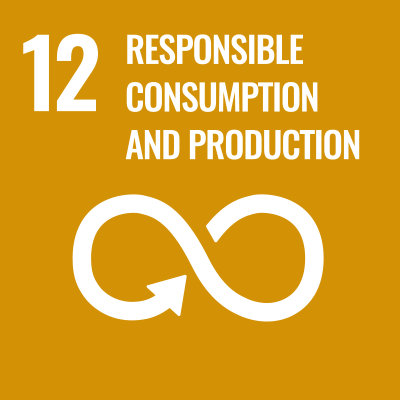
Relevant SDG
SDG 12: Ensure sustainable consumption and production patterns
Striving toward Sustainable Production
We are now facing such global-scale risks as accelerating climate change, the depletion of natural resources, disparities in water resource distribution, expanding and graying populations, and food and agricultural issues. Given this critical situation, as a chemical company, we believe it is our mission to realize, through innovation, the efficient use of natural resources and energy, the utilization of renewable resources and the reduction of environmental burden and to thereby enhance environmental and social sustainability.
Initiatives to replace non-renewable petroleum with renewable biomass as the raw material for plastic production are helping to more efficiently use resources and greatly contribute to ensuring sustainable production, part of one of the SDGs. At the same time, making plastics biodegradable while retaining their useful properties makes it easier for them to break down in the environment, helping to reduce environmental burden. With BioPBS™, a renewably sourced and biodegradable product, Mitsubishi Chemical (MCC) has developed a plastic that offers both of these unrelated attributes.
Features of BioPBS™
Polybutylene succinate (PBS) is an aliphatic polyester resin made from succinic acid and 1,4-butanediol, two raw ingredients typically manufactured from petroleum. In contrast, BioPBS™ is made with succinic acid derived from plant materials, a renewable resource. Its excellent biodegradability at ambient temperature—ultimately breaking down into water and CO2—sets it apart from other biodegradable plastics like polylactic acid (PLA) and polybutylene adipate terephthalate (PBAT). BioPBS™ also boasts such outstanding qualities as low-temperature heat sealability, compatibility with other materials, heat resistance and flexibility. Moreover, many properties that BioPBS™ does not have by itself can be achieved when it is used in composites with other resins and materials.
Characteristics of PBS
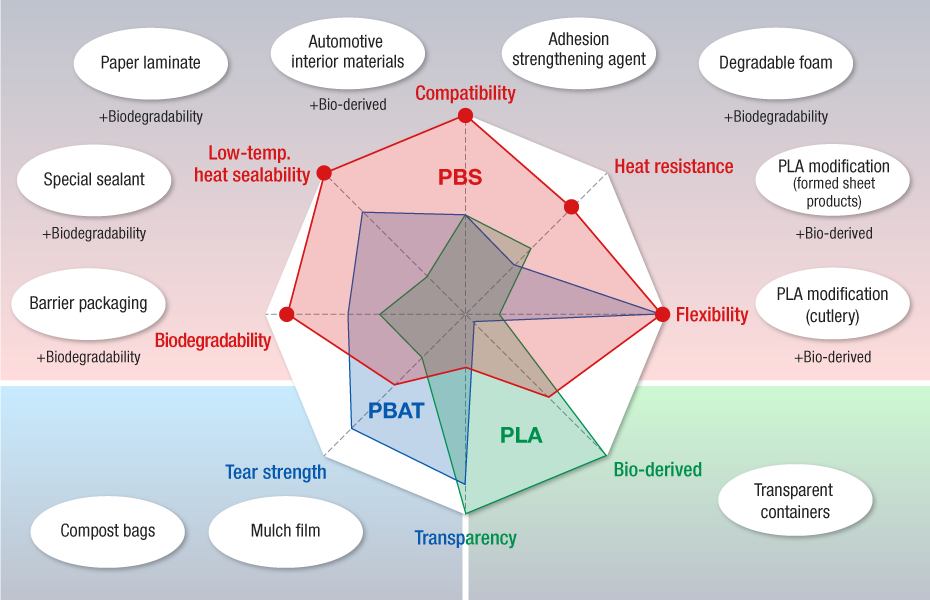
Applications of BioPBS™
BioPBS™ is manufactured and sold by PTT MCC Biochem Co., Ltd., a joint venture of PTT Global Chemical Public Company Limited (previously Petroleum Authority of Thailand) and MCC. Furthermore, MCC is advancing the development, manufacture and sale of compounds that impart new functions to BioPBS™, leveraging its excellent compatibility with other materials and biodegradability. BioPBS™ is currently being used in applications including those below.
Agricultural Mulch Film
Agricultural mulch film is used to cover the rows of soil in which agricultural products grow, helping prevent insect and weed infestation, stabilize ground temperature, maintain soil moisture and prevent fertilizer runoff. Because of the wide range of useful effects they offer, such films are in widespread use. However, after crops are harvested, ordinary mulch films must be collected from the fields and disposed of as waste plastic or incinerated. The biodegradability of BioPBS™ is thus of great use in this application. Agricultural mulch film made with BioPBS™ need not be collected after the harvest, and can instead simply be plowed into the soil, where it naturally breaks down. This helps achieve sustainable production, part of one of the SDGs, while contributing greatly to labor saving in agriculture.
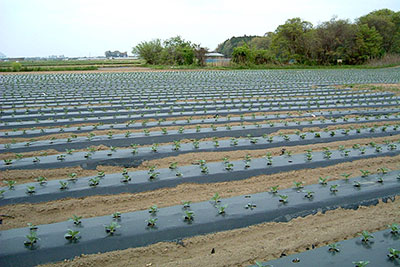
Paper Cups and Straws
Shopping bags, food containers and straws are some of the most prevalent examples of disposable plastics. MCC has made paper cups laminated with BioPBS™ and straws made from BioPBS™ compounds.
In 2021, MCC implemented a verification test as a step toward realizing a circular economy using compost derived from paper cups made with BioPBS™.
For the verification test, MCC supplied paper cups made with BioPBS™ for a soccer event hosted by Giravanz Kitakyushu, a Japanese soccer club. The used paper cups were then collected and composted together with food residue at composting facilities. A portion of the resulting compost was used to cultivate vegetables at a local high school, which will be the harvested and sold at the soccer stadium.
MCC aims to contribute to the realization of a circular economy by actively building recycling and composting systems in collaboration with various companies and municipalities.
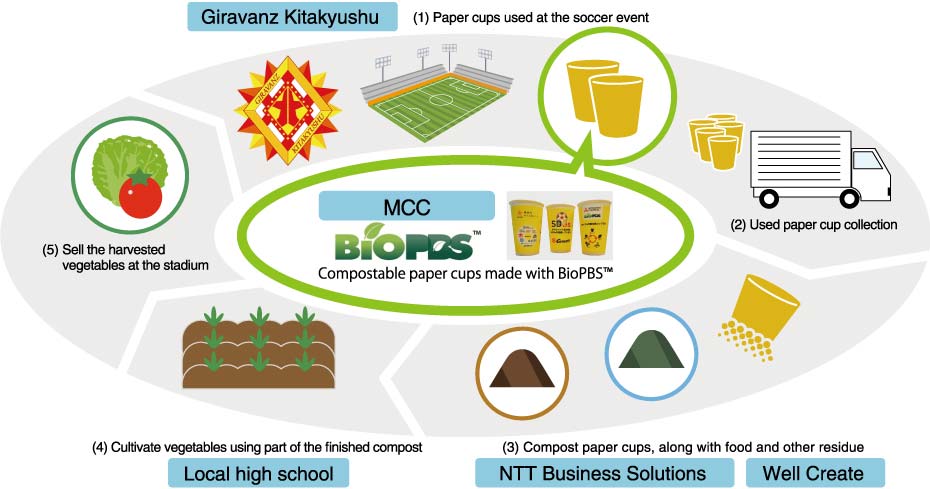

Coffee Capsules
Capsule coffee makers have rapidly grown in popularity in recent years. These machines heat water at high pressure then force it through the ground coffee beans, which are kept fresh inside a capsule, to brew coffee. For this to work, the capsules need to have a number of attributes, including heat resistance, impact resistance and sealability to preserve flavor. Because it meets these needs, BioPBS™ is used as a material for coffee capsules.
The heat and impact resistance of BioPBS™ composites are useful in this application, but the biodegradability of BioPBS™ plays a major role as well. Because used coffee capsules contain wet coffee grounds, they are difficult to recycle as plastic. However, if they are made with biodegradable BioPBS™ composite, used capsules can be composted, a method of disposal with minimal environmental impact. By providing such products, we aim to enrich lifestyles while contributing to sustainable production, part of one of the SDGs.
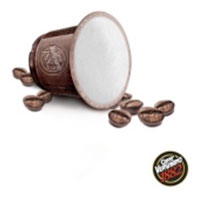
Working toward the SDGs
MCC continues to advance R&D aimed at eventually producing the raw ingredients for PBS, including 1,4-butanediol, entirely from plants. We also aim for even higher biodegradability to better realize sustainable consumption and production patterns, one of the SDGs. MCC is putting its full strength—including advancing R&D, establishing production technologies, ensuring quality that meets demands, developing markets, and developing global business—into realizing these goals.
